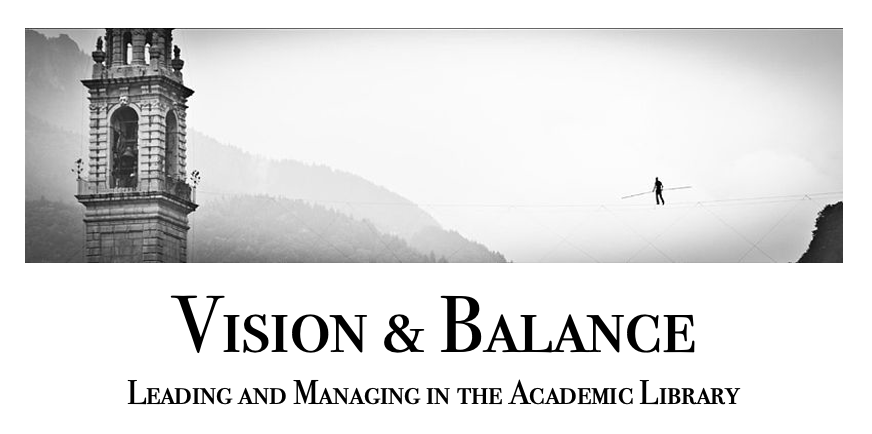Everything Is Politics, and Everything Is Substance
The next time you're tempted to speak derisively or dismissively about "campus politics," ask yourself this: is anything you do as an academic library leader _not_ a matter of politics?

With apologies for a post title that sounds like an attempt at a low-rent Zen paradox, I wanted to share this week something that has been on my mind a lot recently in the context of campus politics
First of all, it should be clear at this point that navigating campus politics is a big part of the job of an academic library leader. Politics is not an unfortunate byproduct of campus life that arises from our failure to conduct academic business in an optimal way, nor is it even a necessary evil that arises from the interaction of human beings in an academic setting. Politics is the job. As leaders in academic libraries, our charge is to manage competing demands on limited resources and negotiate what are often conflicting desires between various stakeholders. We do this internally in our libraries, but also – especially if we’re library directors – as participants in such negotiations between campus entities. That’s politics.
When we complain about “campus politics,” what we’re usually complaining about are people who are (or seem to us to be) operating in bad faith, and about systems that are set up badly. And of course, it’s true that sometimes we do have to deal with people who are dishonest or who are pursuing individual or parochial concerns at the expense of the common good; and very often, our systems are set up in suboptimal ways. And it can be tempting to think that those manifestations of dishonesty and poor design represent “campus politics,” whereas when people are operating in good faith and systems are working as they should, that is somehow a manifestation of something other than campus politics.
But the danger of thinking this way is that it can lead us to underestimate the degree to which politics really does represent the substance of our work – not a distraction from our work or an ancillary demand that wouldn’t exist if everyone would just straighten up and fly right.
Campus politics is not a distraction from our work in academic library. Campus politics is the work.
For example, think about the last time you worked with managers or front-line employees in your library to resolve a conflict about workflows or priorities. That’s politics.
Think about the last time you worked with your leadership team to allocate budgets between departments and programs. That’s politics.
Attending a meeting of campus deans to discuss institution-wide issues? Politics.
Meeting regularly with the provost or vice president to whom you report? Politics.
Representing the university and the library to external donors? Politics, politics, politics.
As leaders in academic libraries, the substance of virtually everything we do is politics, and that’s not a bad thing. Our goal shouldn’t be to minimize politics; our goal should be to operate in good faith, to advance the strategic goals of our libraries and host institutions effectively, to serve our patrons and support the research enterprise superbly, and to provide healthy, nurturing professional environments for our employees. Being good campus politicians is not just essential to those endeavors – it’s intrinsic to them.
Takeaways and Action Items
- Instead of thinking of campus politics as a necessary evil, think of campus politics as the air we breathe in our work as leaders.
- Look at your calendar from last week. Was there any item on your schedule that couldn’t reasonably be characterized as “politics”?
- Ask yourself: what relationships, both inside the library and across campus, do I need to strengthen so that the library’s political position will be enhanced?
